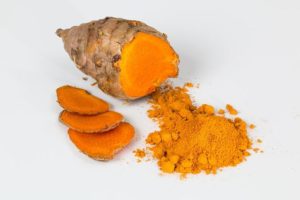Anti-inflammatory supplements help relieve pain and inflammation and may also help prevent some common complications associated with chronic inflammation. However, you should consult your functional medicine doctor before taking any supplements. Although these supplements for inflammation are natural, they can be potent and may interact with other medications. Here, we look at common anti-inflammatory supplements that can help reduce inflammation and relieve pain.

What Is Inflammation?
Inflammation is the body’s response to injury, illness, or irritation, designed to protect it from further injury or illness. If inflammation becomes chronic, it can lead to several health conditions, including heart disease and type 2 diabetes. Some of the common causes of long-term inflammation include a poor diet, smoking, a sedentary lifestyle, and inadequate sleep.
There are several ways to reduce or eliminate inflammation. For example, you can fill your diet with anti-inflammatory food options, get the recommended 30 minutes of exercise each day, practice stress relief techniques, and get between 7 and 9 hours of sleep each night. Finally, taking an anti-inflammatory supplement reduces pain and reduces inflammation.
Anti-inflammatory Supplements
Controlling inflammation can be challenging. Some common anti-inflammatory supplements can help reduce inflammation, promote healing, and relieve pain naturally.
Capsaicin
Capsaicin is a compound found in peppers that makes them hot. One key component is substance P, which reduces the body’s ability to experience pain. Capsaicin is available as a topical formula that helps with muscular and nerve pain. Applying it to stiff joints and inflamed muscles relieves pain and reduces inflammation naturally.

Fish Oil Supplements
Omega-3 fatty acids, like those found in fatty fish, lowers inflammation. Fish oil supplements contain anti-inflammatory properties associated with heart disease, diabetes, and other chronic inflammatory diseases. Fish oil contains two types of fatty acids: EPA and DHA. DHA promotes digestive health and reduces cytokine levels in the body. As these levels decrease, inflammation decreases. Studies have shown that DHA significantly reduces inflammatory markers.
Quercetin Supplements
Quercetin is a flavonoid found in a variety of fruits and vegetables. This flavonoid helps lower systemic inflammation naturally. Quercetin is also a powerful antioxidant that helps to detoxify the body, control blood sugar levels, kill cancerous cells, and reduce the risk of heart disease. Quercetin is often used to improve blood vessels and your heart. In addition to this, it helps to relieve arthritis pain and swelling.
Resveratrol
Resveratrol is an antioxidant found in grapes, dark chocolate, peanuts, blueberries, and red wine. This potent anti-inflammatory compound protects against neurodegenerative disorders, cardiovascular disease, and cancer. It also contains compounds that help protect against oxidation linked to systemic inflammation. This powerful supplement fights inflammation and helps with chronic conditions like ulcerative colitis, liver disease, and obesity. It also helps lower inflammatory markers, regulate blood sugar levels, lower triglycerides, and reduce body fat.
SAM-e
The body naturally produces SAM-e (S-adenosylmethionine) to regulate genes that control expression and behavior. It can help manage the inflammatory symptoms associated with certain liver conditions, osteoarthritis, and depression.
The dosage depends on the inflammatory condition. In addition, it can interact with various medications, so you must speak to your integrative doctor before using it. High dosages of SAM-e can cause several digestive issues, including nausea, diarrhea, vomiting, and gas.

Turmeric
The active ingredient in turmeric is curcumin. Curcumin reduces the inflammation associated with metabolic conditions related to obesity. It also reduces insulin resistance and decreases blood glucose levels naturally. Curcumin increases the risk of those who have a bleeding disorder or take blood thinners; therefore, always consult your medical doctor to determine if it is safe for you to take this anti-inflammatory supplement.
Zinc
Zinc provides anti-inflammatory protection and supports the immune system. It works by decreasing oxidative stress in the body, which causes inflammation and leads to a host of medical conditions. Zinc supplements can reduce the risk of infections.
Zinc deficiencies can lead to arthritis, inflammation, and pain. However, too much zinc can be dangerous. In addition to this, zinc can interact with certain antibiotics, calcium, and diuretics. To ensure you are reaping the benefits of zinc without any of the dangers associated with too much zinc, speak with your functional medicine doctor.

Anti-inflammatory Food
An anti-inflammatory diet naturally reduces inflammation while avoiding foods that trigger inflammation. These foods include fried foods, refined carbohydrates, red meat, and soda. What is anti-inflammatory food? Anti-inflammatory foods reduce inflammation and relieve pain. Some of the best foods to incorporate into your diet include blueberries, strawberries, nuts, leafy green vegetables, tomatoes, and olive oil.
Chronic inflammation increases the risk of several dangerous chronic medical conditions, such as heart disease, autoimmune disorders, and type 2 diabetes. Taking supplements to fight inflammation, eating a healthy diet filled with anti-inflammatory foods, and taking anti-inflammation vitamins and minerals can help reduce inflammation and decrease disease risk.
If you are experiencing chronic inflammation, talk to your functional medicine doctor. This doctor understands how each system of the body works together to promote health. They will guide you using food, vitamins, minerals, and supplements to reduce inflammation and protect against disease.























